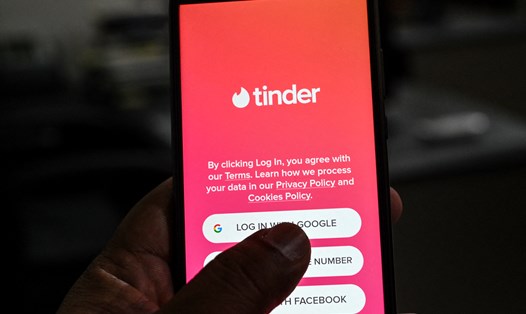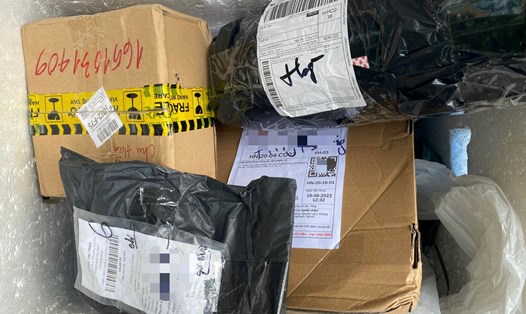In a world where every digital action leaves an impression, personal data is increasingly becoming a valuable resource. From search history, travel location, to medical and financial information - all contribute to creating a "digital portrait" of each person. However, while technology giants earn billions of dollars in profits from exploiting user data, those who own that data have little or no economic benefits. This imbalance not only poses a moral challenge but also raises questions about personal data ownership in the digital age.
The importance of personal digital data
Personal digital data is any information that will help identify an individual through online behaviors, preferences, transactions or interactions. From name, address, phone number, bank account to health record, website browsing history or even political trends - all are pieces in a panoramic picture of a person in the digital space. When this information is collected, analyzed and used innocently, it not only violates privacy but can also cause serious consequences for finance, personal security and civil rights.
One of the top reasons why personal data is valuable is its ability to predict user behavior. Artificial intelligence and machine learning algorithms need a large amount of data to learn and improve the accuracy of decision making - from product and service recommendations to credit risk analysis. As data becomes fuel for the digital economy, protecting it becomes a mandatory requirement, not only at the individual level but also for organizations and governments.
However, personal data security has never been easy. Many organizations have difficulty determining which data is sensitive, especially when the amount of data increases exponentially per day. Outdated tools and bulky database systems make data screening and protection slow and vulnerable. In that context, security vulnerabilities are easily exploited, leading to large-scale data thefts with serious consequences for both users and businesses.
Special types of data such as financial information, medical records or residential addresses need to be tightly protected. A small negligence in sharing this information can lead users to become victims of fraud, tracking or discrimination. Even political trends - which seem to be just personal views - can be used to manipulate public opinion, affecting elections or media campaigns.
The first country to allow people to sell personal data themselves
With much of the world still struggling with privacy laws, Brazil has taken a bold step forward: Allowing its citizens to sell personal data legally and under control. With the Wallet project implemented by the State-owned company Dataprev in collaboration with technology partner Drum Wave from the US, Brazil has become the first country in the world to experiment with a model where digital data is not only a right but also an asset that can benefit the owner.
d Wallet - abbreviated as data wallet - is a data wallet that allows users to store, manage and trade their personal data as an asset. When a citizen uses daily digital services such as shopping, searching for information or registering for an account, data arising from those behaviors will be integrated into the data wallet. Users can choose to share data with a third party to receive payment, or completely refuse if they do not want to be tracked.
The notable point of this initiative is that users are not passive like when accepting cookies from websites, but have the right to proactively negotiate the value of data and decide whether to make a transaction or not. When a company makes a request to buy data, users are clearly informed about the purpose of use, collection conditions and payment fees. The payment amount is immediately transferred to the wallet and can be withdrawn to the bank account.
The goal of the project is not only to hand over data ownership to the people but also to redistribution value in the digital economy. According to Dataprev experts, this initiative is seen as a measure to correct the historical imbalance between users and technology companies as previously, only the data collector benefited. Instead, d Wallet opens a comprehensive financial model where even people in remote areas can participate in the digital economy with their own data.
However, not everyone is optimistic. Data security experts warn that commercializing data could increase data value to the point of disadvantage for small businesses and state agencies. In some countries with poor reading comprehension and slow Internet access in many areas, forcing people to choose between privacy and a small amount of cash could deepen digital inequality. vulnerable people can sell data without understanding the consequences, leading to exploitation or manipulation.
However, despite these concerns, Brazil's initiative is still seen as a major breakthrough in shaping a more equitable data ownership model. The Brazilian parliament is currently considering a new bill to recognize personal data as private property, paving the way for the widespread application of " Wallet" in the future. The bill requires companies to pay users transparent remuneration when collecting and processing data - an unprecedented thing in the international legal precedent.
If successfully approved and implemented, "d Wallet" will not only make Brazil a pioneer in the field of digital data, but can also become a model for other countries to learn from. In the future, no one knows how much more data value will increase, but at least, thanks to the brave steps like in Brazil, people now have the opportunity to turn personal information into real assets - an asset that can be controlled, traded and make real profits.









